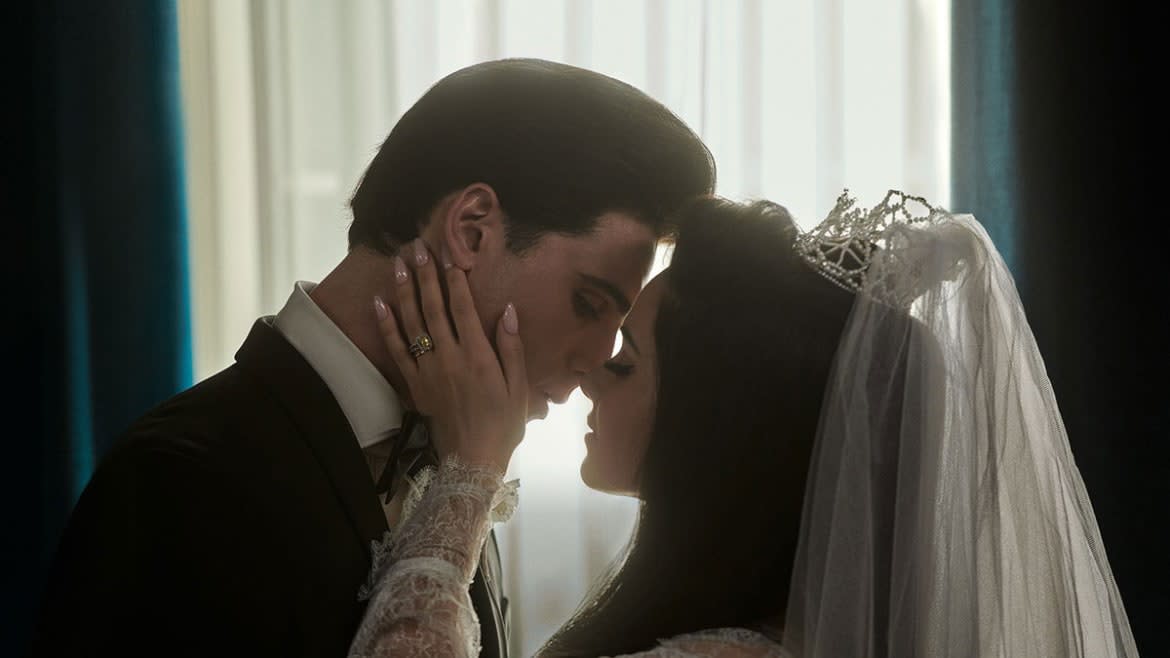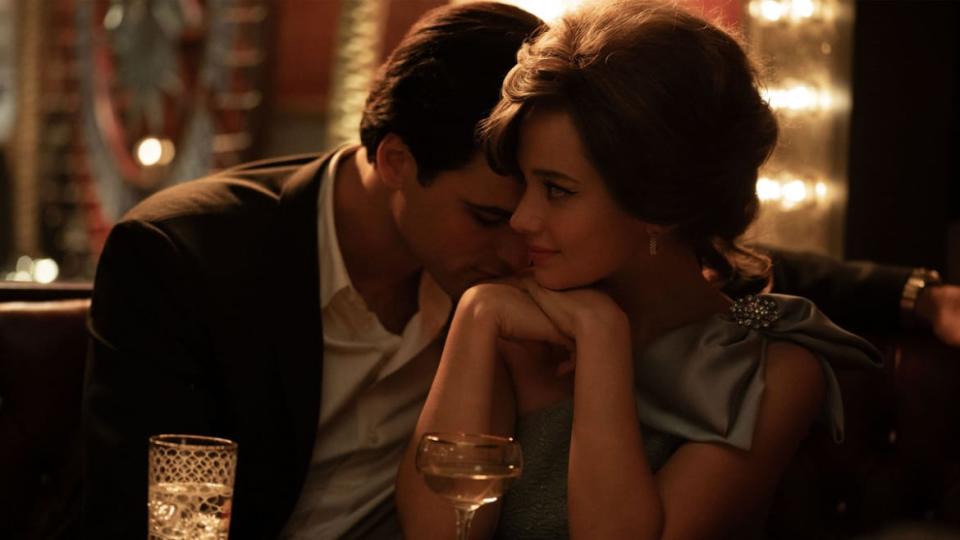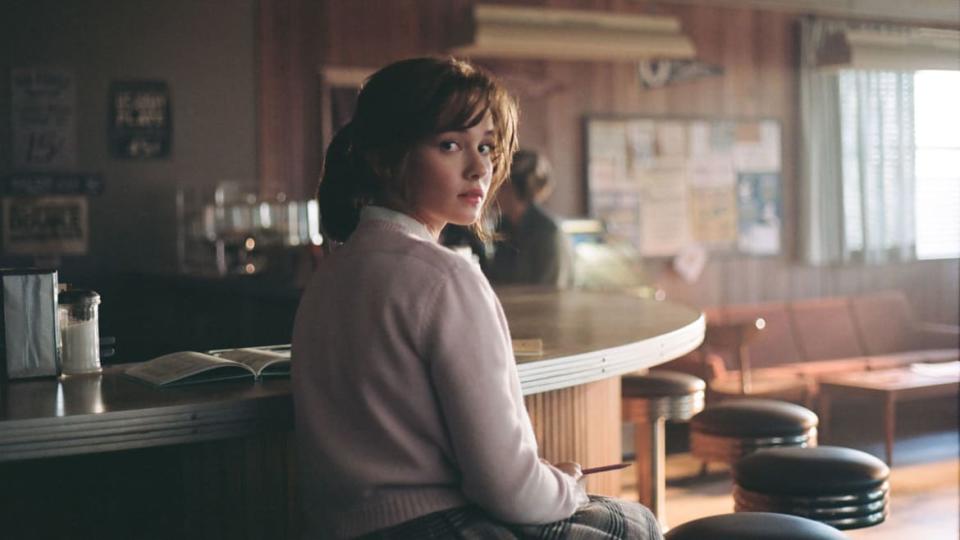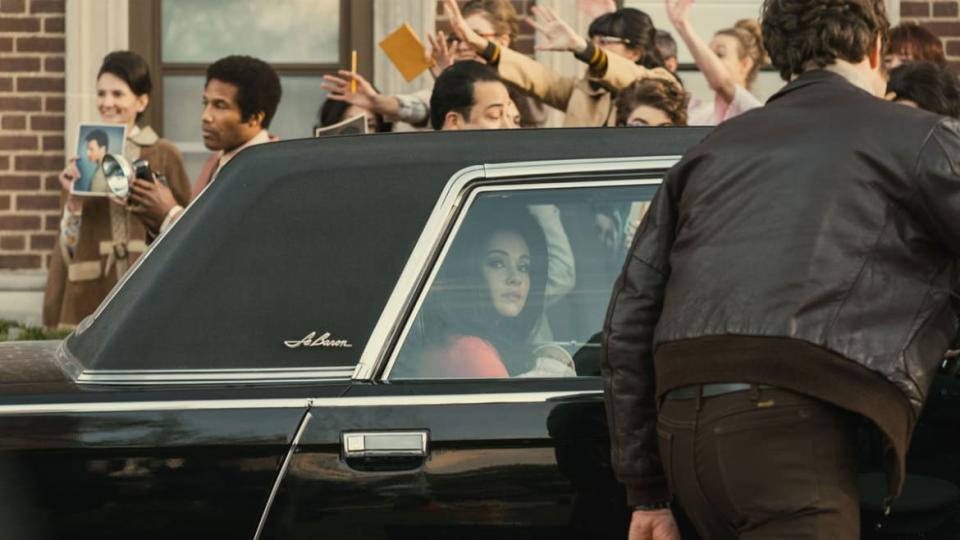‘Priscilla’ Biopic Is a Radical Telling of Elvis’ Abusive Relationship

VENICE, Italy—Sofia Coppola isn’t interested in the commonplace. From the spoiled rich kids of The Bling Ring to the difficulties of being young, rich, white and beautiful in Japan (Lost In Translation)—or the life of actual Marie Antoinette—Coppola’s subjects are usually removed from the lives of normal people to an extent that is comical. Even going by those standards though, the subject of Priscilla—becoming a child-bride to the most famous man on the planet, whose nickname is literally “The Pelvis”—is in a league all of its own. In the film, which premiered Monday at the Venice Film Festival, Coppola displays perhaps more tenderness than ever before, making for a film which, for all its slightness and occasional missteps, is affectingly clear-eyed and candid.
Cailee Spaeny, playing Priscilla as girlish, bored, and ordinary from the get-go, stars as the object of Elvis’s affections from age 14 to 29. She is only a schoolgirl when she first meets Presley, and Coppola is already very nimble, early on in the movie, in the way she depicts this imbalanced romance/courtship—a grounding that will stand her in very good stead later on as she widens her perspective and addresses the abuses that took place within that relationship.
At the start, Coppola shows very well how Priscilla was a more than willing participant, from a very young age, in the relationship with the singer—but she also shows, in a highly nuanced perspective, how obviously green and lacking in experience the girl was. Equally, she depicts Elvis as a childlike naïf who was genuine in his love for Priscilla, as well as a respectful admirer, an unwitting abuser, and a knowing groomer.
That the rapport between the two of them was complicated by so many factors—such as fame, drugs, age, unfaithfulness, the disputed agency of each party, and the reluctant consent of Priscilla’s parents—does not detract at all from Coppola’s examination of an abusive dynamic. On the contrary, it gives a great deal of amplitude and realism to that depiction, as Elvis’s relationship with his much younger partner only turns sour gradually, and in ways that we are initially invited to overlook in the same way that Priscilla herself, so innocent and full of love for Elvis, would have surmounted her fears herself.

This is a complex view to take of a relationship, which clearly was founded in mutual love but which always had an imbalance at its heart, born of Elvis Presley’s controlling, manipulative misogyny. Coppola is intent on this, especially in scenes where Presley is casually controlling, dismissing Priscilla’s tastes with a wave of the hand, forbidding her to work or wear certain dresses, as if this were a freely agreed contract between them.
Jacob Elordi, not always very convincing on the big screen, is especially good at being a ‘normal’ Elvis Presley—a vain, spoiled, beautiful grown-up child—as opposed to the starry Elvis played by Austin Butler in last year’s Elvis. That means that we see how relatable he would have been; how someone so jejune would have waved away those telltale signs of a controlling, abusive personality, particularly since they were counterbalanced by sincere love for her.
Meanwhile, Coppola adds a further level to this relationship by showing Presley’s seeming lack of sexual interest in Priscilla, in a series of scenes where he blueballs his younger partner, giving her prescription sleeping pills instead of seeing to her needs. (In a fine comical moment, Elvis shakes Priscilla awake after a long doze and tells her she’s been asleep for two days—this raises a huge laugh, which swiftly turns to horror as one’s knowledge that she was only a teenager at the time kicks in.)

Priscilla, the film, is preoccupied with sex—with the uneven sexual dynamic between the two, and Elvis’s infidelities, and Priscilla’s nascent sexuality—so it counts as a serious failing that it is so prudish in depicting it. At a key moment, Elvis—either courteously or out of a slightly lacking desire for Priscilla—instructs her to wait before they have full penetrative sex together, adding, “But we can still do other stuff.” Here, the movie fades to black—a misstep, since we categorically need to see what the other stuff consists of, in order to judge the dynamic between the two. Is Priscilla getting her needs met? What acts are involved? This is important, in a film about a highly imbalanced relationship.
Beyond the admirable depth of the relationship it depicts, there is a certain slightness to Priscilla as a film, especially in an edit that combines a number of disjointed, oddly short scenes. That gives Priscilla the feel of a rote biopic, instead of the character portrait it really is; instead of the meditation on fame and boredom, which it also is.

Who cares about Priscilla being told to get better grades by a nun, or about Priscilla taking karate lessons? Nobody. These tiny vignettes, apparently stuffed in so as to get through as much story as possible, hamper the film’s rhythm and dilute its focus. Far better is when Coppola is able to study money, tedium, and femininity as played out in a man’s world: In that respect, she makes admirable use of costumes, conjuring soft lighting to frame her character attentively. Cailee Spaeny is fine as Priscilla, but it’s notable that, as a character, she is nothing without Elvis Presley; Coppola wisely frames her mostly through that relationship to the man, save a couple of misbegotten scenes.
Priscilla, at its best, acts as a sort of corrective to historical record, a revisionist take that places a woman front and center. Elvis was the talented one, the magnetic one, while Priscilla—at least in this film—was nothing so much as resilient and good-natured, diligent, loving; there is something radical about reframing Elvis’s story around her.
Liked this review? Sign up to get our weekly See Skip newsletter every Tuesday and find out what new shows and movies are worth watching, and which aren’t.
Get the Daily Beast's biggest scoops and scandals delivered right to your inbox. Sign up now.
Stay informed and gain unlimited access to the Daily Beast's unmatched reporting. Subscribe now.

 Yahoo News
Yahoo News 
